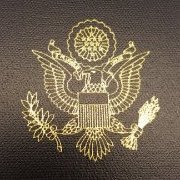-
Recently Browsing 0 members
- No registered users viewing this page.
Announcements
-
Topics
-
Latest posts...
-
21
Russian economy heading for meltdown
Yes and no,this looks great on paper but go talk to ordinary people over there. It is really bad and it will get a lot worse. Not enough people left to do the work on the farms and in factories. No maintenance being done,teachers in hiding,smart people fleeing the country. Lots of videos on You tube about how life really is for most russians. -
68
Why experts are blasting Trump for 'already breaking the law'
Oh look, a "convicted felon" voting. You should report him! -
38
Koh Pha Ngan terror threat claims are really nothing, say police
Why? Because Thailand is a popular destination for Arabs? What next a warning for Jews living in Michigan 😂 -
22
Thailand plans 14 new floating solar farms to boost renewable energy
Yes of course hydro /electric generation has been a historical disaster ! Not ! Micro plastics are already an element of pollution due to the proliferation of environmental disrespect of the human populace in dumping simple waste packaging but resin encased items capable of assisting energy supply is suddenly more toxic than the unnecessary garbage generated by food packaging alone? A floating solar power farm is worthy of critical comment while the two skanky tomatoes exessively cling wrapped onto a styrene tray at your favored slopermarket makes you feel food safe? -
54
THAILAND LIVE Thailand Live Thursday 14 November 2024
71 year old stressed drug suspect defecates herself during arrest Photo via Matichon A 71 year old Thai woman in the central province of Ang Thong defecated herself during an arrest yesterday for drug dealing. She claimed she needed to sell drugs to cover her medical expenses. Full Story: https://aseannow.com/topic/1343589-71-year-old-stressed-drug-suspect-defecates-herself-during-arrest/ -
12
Indians Ignore Police Summons After Pattaya Beach Brawl
How can they show up when they are (likely) long gone!! 🛫 -
194
British Man Injured in Pattaya Road Rage Incident with Thai Driver
For someone who claims to avoids fights you seem very aggressive. Sounds like you get into a fight in a phone box. I wasn't talking about getting into fights and i do avoid them. my only point was that if you do get into a fight, fight it out like a man and don't use a weapon. only cowards and people who can't fight use weapons -
1
Baht to basics: Tourists’ wild rides on Phuket tuk tuks spark online uproar
I am happy all trash goes to Phuket.
-
-
Popular in The Pub
.png.3b3332cc2256ad0edbc2fe9404feeef0.png.8488ab72b8bb2e508209bfe3211b6e08.png)

.thumb.jpeg.42eea318e3350459f0aaaa5460326bca.jpeg)





Recommended Posts
Create an account or sign in to comment
You need to be a member in order to leave a comment
Create an account
Sign up for a new account in our community. It's easy!
Register a new accountSign in
Already have an account? Sign in here.
Sign In Now